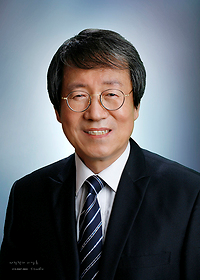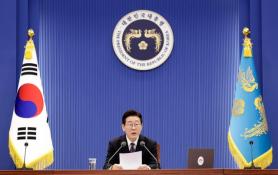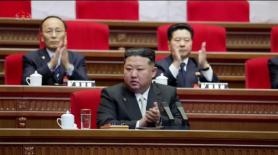
Columnist Lee Jae-ho
At the recent United Nations General Assembly, President Lee Jae Myung unveiled his "END Initiative," a plan aimed at ending the Cold War on the Korean Peninsula through exchange, normalization, and denuclearization.
While presented as a flexible, multi-pronged approach, the initiative raises a critical, uncomfortable question: Does South Korea still suffer from the fatal illusion that North Korea can be coaxed away from its nuclear arsenal?
The reality is that Lee’s plan, despite its new acronym, risks repeating the strategic mistakes of the past two decades. Critics are right to fear that the core nuclear issue might be diluted or neglected in the pursuit of improved inter-Korean ties.
Pyongyang’s commitment to its nuclear program has proven stronger than any diplomatic or economic inducement. The demolition of the inter-Korean liaison office in 2020 and Kim Jong-un’s recent declaration of the South as a hostile entity underscore his regime’s unwavering, nuclear-first focus.
Historically, South Korea has often been its own worst enemy in this dynamic, exhibiting an eagerness to provide aid and seek sanctions relief that effectively subsidized Pyongyang’s defiance. This passive, almost supplicatory approach — illustrated by the historical anecdote of North Korean journalists jokingly seeking more inter-Korean cooperation funds — created a strategic vulnerability. It fostered a dangerous mindset, even among some in the South, that North Korea's nuclear weapons might eventually benefit a unified Korea.
This ideological leniency undoubtedly contributed to the current situation where a nuclear-armed North Korea is an immutable reality.
The failure of past policies is stark. The 2018 Singapore and 2019 Hanoi summits handed Kim Jong-un international legitimacy without requiring any significant concessions, validating the utility of his nuclear weapons.
Even during the Clinton administration, when the U.S. weighed a surgical strike on North Korea's nuclear facilities, South Korean opposition was enough to stop it. We are now living with the consequences of that hesitancy and the long-term failure of the goal to achieve denuclearization through engagement alone.
It is now difficult, if not impossible, to imagine a "nuclear-free North Korea." The regime’s economic failures have only cemented its reliance on nuclear capabilities as the ultimate guarantor of its survival.
South Korea must abandon the pretense that simple exchange and normalization will somehow undo a nuclear state. The strategic conversation must pivot from denuclearization to deterrence.
The time has come for a serious, public reassessment of South Korea’s nuclear strategy. This requires moving beyond wishful thinking and embracing a tough-minded realism.
Options now being discussed, such as reintroducing U.S. tactical nuclear weapons, ensuring a constant presence of armed U.S. nuclear submarines in Korean waters, or even enhancing South Korea’s own nuclear capabilities to match regional rivals, must be put on the table. Foreign Minister Cho Hyun’s recent comments about potentially easing restrictions on uranium enrichment and nuclear fuel reprocessing may signal a necessary shift in attitude.
The END Initiative offers a nostalgic echo of failed peace plans. To ensure the true end of the Cold War — and not merely the end of South Korean diplomatic leverage — President Lee must acknowledge the nuclear reality and prioritize a credible, powerful strategy of deterrence.
Only then can any meaningful form of exchange and normalization proceed from a position of strength, rather than hope.
About the author
-Ph.D. in Political Science from Korea University
-Former Political Editor, Editorial Chief at Dong-A Ilbo
-Former President of the Korea Publication Industry Promotion Agency
* This column, published by Aju Business Daily, was translated by AI and edited by AJP.
Copyright ⓒ Aju Press All rights reserved.




